Parliament Discussion about Relationship between HRT and Croatian Audiovisual Industry
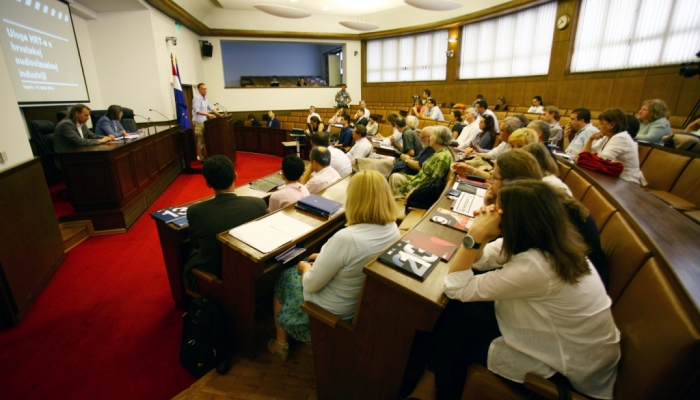
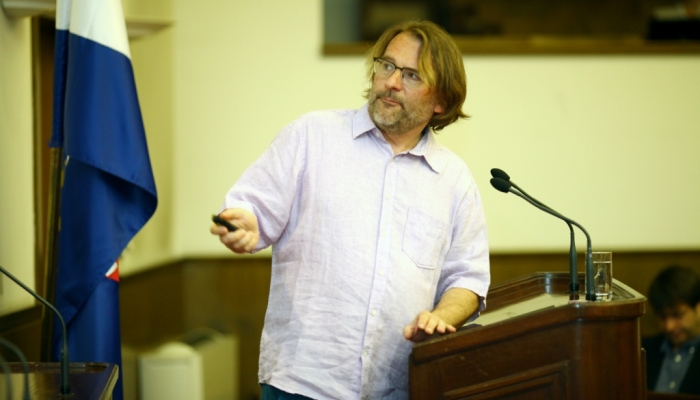
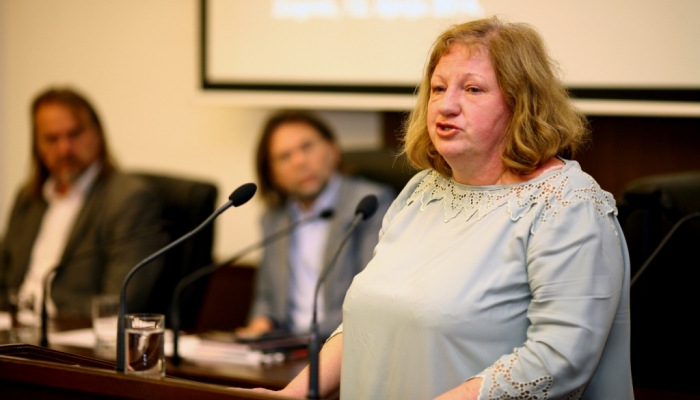
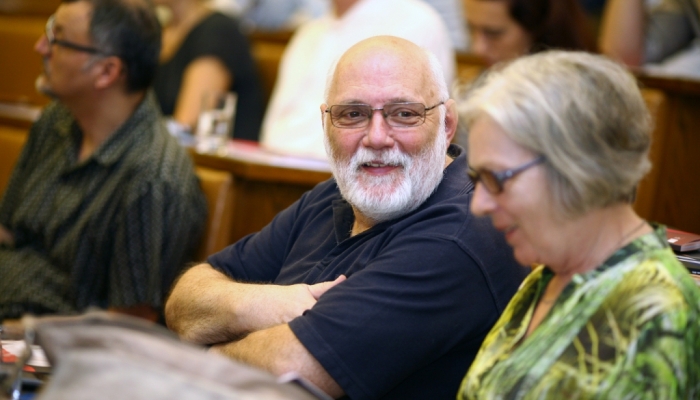
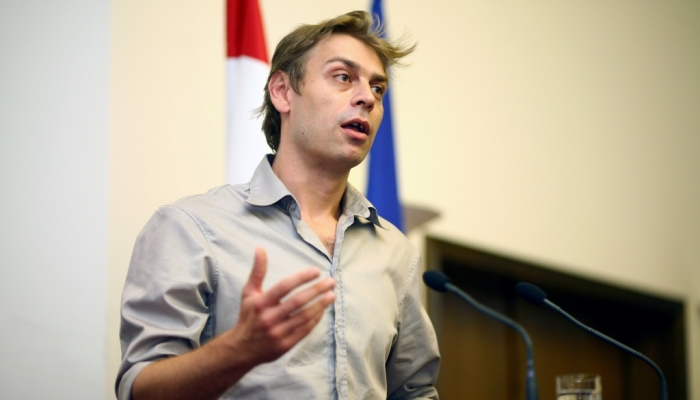
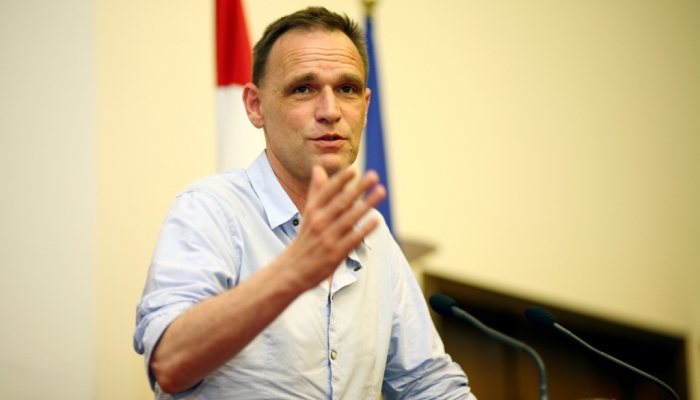
Zagreb, 12 June 2014 – At the Croatian Parliament today a joint theme session took place, gathering members of the Committee for Information, IT and Media, and Committee for Education, Science and Culture. The session was attended by the Minister of Culture Andrea Zlatar Violić, Head of the Croatian Audiovisual Centre Hrvoje Hribar, representatives of Programme Council, Supervisory Board and management of Croatian Radio and Television, and Croatian Film Directors Guild, Croatian Producers’ Association and Croatian Association of Filmmakers.
The subject of the session of the relationship between the audiovisual community and Croatian Radio and Television (HRT), with a focus on the crisis of television co-productions and copyright infringement.
The session was opened by Head of the Croatian Audiovisual Centre (HAVC), Hrvoje Hribar, with a brief report on the Centre’s activities in 2013 and a proposal to renew the halted collaboration. In 2013 HRT, according to Hribar, cancelled collaboration with the Croatian film community, i.e. local co-productions. Quitting co-productions means giving up the principles European audiovisual branch is based on, which means, damaging the prepaying customers, viewers and local cinema in a single move, said Hribar.
Another outstanding issue the audiovisual community needs to sort out with HRT is copyright, i.e. paying an adequate fee pursuant to copyright and related rights. As Antonio Nuić, president of the Croatian Film Directors Guild, explained, there have been problems in the last four years, ever since HRT terminated the so-called provision on reruns. Reruns are a model of financing works made long time ago and made well. More precisely, the production does not have enough funds to pay for original work adequately, but it grows precisely because of the reruns and directors thus get appropriate recognition for their work. Naturally, this motivated directors to make better films, because it brought them decent fees. Four years ago HRT removed this provision from the Regulation and the new contracts do not even provide an option of rerun fees, said Nuić.
According to HRT’s current price list, a director of a documentary film up to 60 minutes gets a gross amount of 7,500 kuna, which for three months of work, a minimum time to produce a decent audiovisual piece, amounts to only 2,500 kuna a month.
We cannot accept such a price list and regulations because they are financially degrading and unacceptable from an author’s point of view. The law says the fee should be adequate and this one is not, said Nuić, adding that this is a safe way of putting all production to a halt.
Vice-president of the Croatian Film Directors Guild, Vinko Brešan, illustrated the co-production issue on the children’s programme, saying that HRT in its contract with the Government agreed to acquire foreign children shows, which means killing Croatian language. In Zagreb Film we are currently developing an animated serial for children, but it was commissioned by RTL, not HRT, said Brešan.
Director and producer Nenad Puhovski said that at HRT there is a systematic organic issue with understanding and wanting to create co-productions, and that this is not a matter of money, but good will to discuss projects. He added that ZagrebDox has been hosting pitching forums for 10 years and completed about 40 per cent of them, but none of them included HRT. This means that there is a certain mindset that refuses to open up to the world around it. We need to understand that we are doing the same job, European co-productions are a condition sine qua non, said Puhovski.
President of HRT’s Programme Council Nina Obuljen Koržinek explained that the Programme Council’s jurisdictions were drastically cut down and that it is difficult to obtain accurate information about programme investment. In matters of programme strategy, the word co-production was never mentioned, said Obuljen, adding that the Programme Council made it possible to moderate different factors, making co-productions to everyone’s use.
At the end of the session, Hribar called for agreements and prompt deadlines for their reaching to be made for these two issues – copyright and co-productions. I propose that these two future documents, an agreement between HRT and filmmakers, and HRT and HAVC be a guarantee to competent authorities in creating a positive opinion of HRT’s work. What we owe to our colleagues from the music industry is integration of copyright system. This makes them collateral victims, because this problem cannot be solved single-handedly, even though some may have intended to do so, said Hribar.
Production manager with HRT, Marija Nemčić, announced that the first draft of an agreement between HAVC and Croatian Film Directors Guild can be expected before 1 July, as well as the first memorandum on solving the copyright issue – which will keep the experts busy with a complicated task.
Photographs from today’s press conference can be downloaded on this link. Photographer: Oleg Moskaljov.
